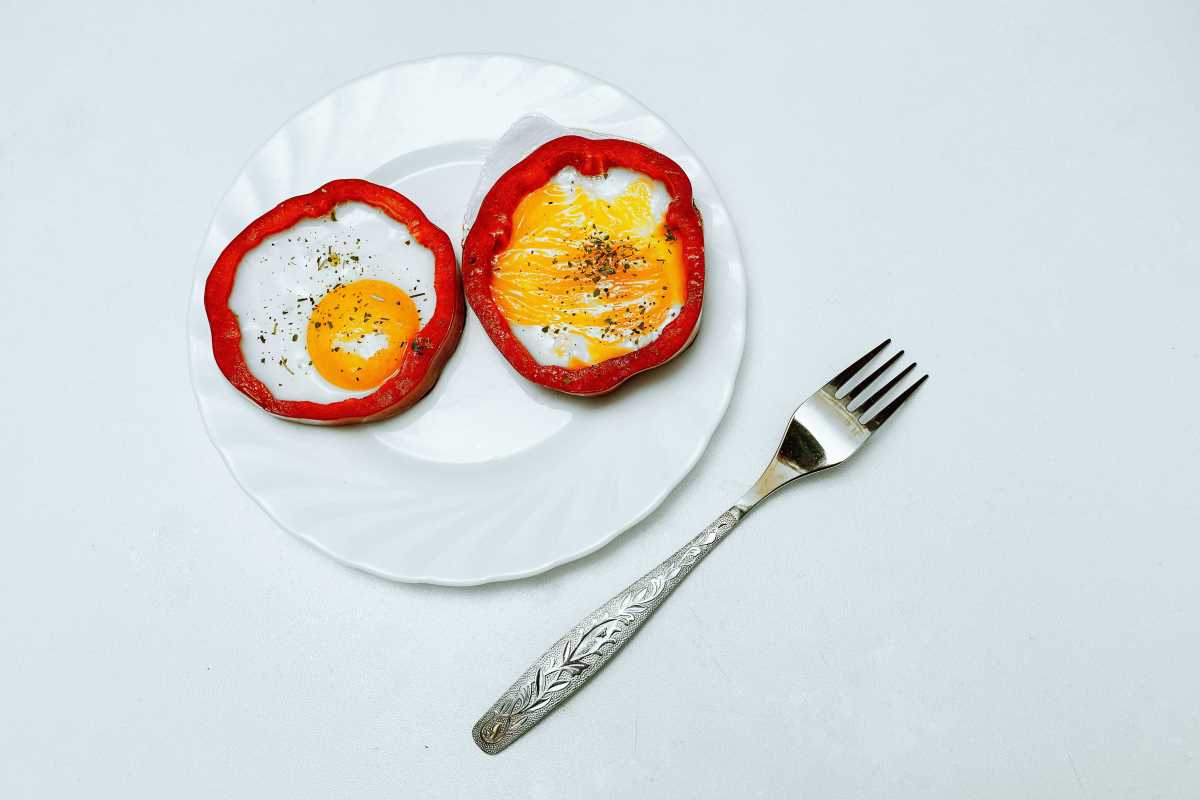The thyroid is a small, butterfly-shaped gland in your neck, but don’t be fooled by its size. It’s basically the command center for your metabolism and energy levels. When it’s not working as it should, your body feels the repercussions. Fortunately, the right nutrition can do wonders in supporting thyroid health. Whether you're dealing with sluggishness, unexpected weight changes, or feeling colder than an arctic fox, what you eat matters more than you think.
Picking Foods High in Iodine
When it comes to thyroid health, iodine is the all-star nutrient. Your thyroid depends on it to produce essential hormones like triiodothyronine (T3) and thyroxine (T4). Without enough iodine, you might start experiencing symptoms like fatigue or an enlarged thyroid (hello, goiter).
Seafood is a fantastic source of iodine. Think salmon, shrimp, and sardines. Not a fan of fish? Fear not. Seaweed has you covered. A sprinkle of dried seaweed, also known as nori, enhances soups, salads, or even your favorite avocado toast. It’s nutritious and feels fancy. Who doesn’t want to feel fancy?
Iodized salt is another option, but moderation is key. While it’s a handy source of iodine, over-salting your meals can lead to other health problems, like high blood pressure. Be mindful with the shaker and get creative with other herbs and spices for flavor.
You can even try dairy, such as yogurt or milk, for its iodine content. One cup can provide a surprising amount of this vital nutrient. Pro tip? Pair yogurt with fresh berries or granola for an energizing breakfast that keeps your thyroid smiling.
Make sure your iodine intake is balanced. Too much iodine can be just as problematic as too little, creating a culinary tightrope walk that’s worth the effort. Consult a healthcare provider for the sweet spot if you’re unsure.
Stocking Up on Selenium-Rich Eats
Ever heard of selenium? It’s the nutrient quietly working behind the scenes for your thyroid. Selenium protects your thyroid tissue from oxidative damage and aids in hormone production. Basically, it’s the bodyguard this gland deserves.
Brazil nuts are the MVP of selenium sources. Eating just a couple of these nuts a day can give your thyroid the selenium boost it needs. Plus, they’re delicious. Just remember, “a couple” isn’t a suggestion; it’s the max. These nuts pack a punch, and overdoing it could overdeliver on selenium.
Other great sources include fish like tuna and halibut. Even turkey and chicken are selenium-rich, offering versatility for your meal planning. Baked, grilled, or roasted, these lean protein options can be the centerpiece of your dinner table.
For plant-based eaters, lentils and sunflower seeds come to the rescue. Lentils are great in soups, salads, or even stews. Meanwhile, sunflower seeds can be a garnish for salads or a snack during your mid-morning slump.
Whole grains like oatmeal and brown rice are also good sources. Bonus points for their fiber content, which helps keep your digestive system paced and happy. Everyone loves a two-for-one deal, and when it comes to grains, you’re getting nutrients and gut support.
Including selenium-rich snacks and meals in your daily routine doesn’t have to feel tedious. A morning smoothie sprinkled with nuts or a grilled chicken salad can make a big difference without taking much effort. Cozy up to selenium, and your thyroid will thank you.
Understanding the Power of Zinc
Zinc is your thyroid's unsung hero. It’s essential for hormone production and helps regulate T3 levels. If iodine and selenium are the leads of this thyroid drama, zinc is the supporting actor no one can ignore.
Oysters are a zinc powerhouse. If slurping them raw isn’t your thing, try cooked versions baked with a sprinkle of Parmesan and garlic. High in flavor and nutrients, they’re as good for your health as they are for your Instagram.
For land-based options, reach for beef or chicken. These classic proteins are versatile, making it easy to sneak zinc into your diet. Enjoy them grilled, sautéed, or tossed into your favorite pasta dish.
If you prefer plant-based sources, pumpkin seeds are a fantastic option. Toss them into overnight oats or sprinkle them onto a bowl of veggie soup. Legumes like chickpeas and kidney beans are other zinc-rich powerhouses, perfect for soups or salads.
Fancy some chocolate? Dark chocolate (70% or higher) has a hidden stash of zinc. Savored mindfully, it’s a treat that supports your thyroid while satisfying your sweet tooth. Talk about a win-win.
Still snack-hunting? Consider a handful of cashews or almonds. They’re portable, tasty, and offer a quick zinc boost between meals. Keeping a stash in your bag or desk drawer makes staying on top of your nutritional game effortless.
Eating Your Way to Vitamin D
Vitamin D and your thyroid are unlikely but impactful buddies. Essential for regulating immune function and keeping your mood balanced, vitamin D also plays a key role in thyroid health. A deficiency can exacerbate thyroid issues or even trigger new ones. Yikes, right?
Sunlight is the most natural and effective source of vitamin D. But if you’re spending more time indoors binge-watching shows than basking outside, food can step in.
Fatty fish like salmon, mackerel, and tuna are all-stars here. Grill some salmon fillets or bake mackerel for a rich, nutrient-packed meal. Sardines are a good option too. Eat them on crackers or toss them into pasta for an easy lunch.
Egg yolks deserve a moment in the sun, too. They’re not just for breakfast anymore. Whip up a frittata loaded with veggies, or enjoy them hard-boiled as a portable snack.
Fortified foods can also help you boost vitamin D intake. Some cereals, plant-based milks, and orange juices are fortified with this essential nutrient without compromising on taste.
Mushrooms are a plant-based highlight. Exposing mushrooms to sunlight naturally increases their vitamin D content. Slice them up for a salad or sauté them alongside garlic and thyme for a simple side dish.
Keeping your vitamin D levels balanced isn’t just about food. Pair it with moderate exposure to sunlight and physical activity for maximum benefits. Your thyroid will work smoother, and hey, so will your mood.
Keeping Your Thyroid Happy with Balance
Supporting your thyroid isn’t just about specific nutrients; it’s about balance. A well-rounded diet feeds your thyroid the fuel it needs without overloading it with unnecessary stressors. The foods you avoid can be just as important as the ones you prioritize.
Processed foods, loaded with additives and refined sugars, can disrupt the delicate balance your thyroid craves. Scale back on these and focus on whole, nutrient-dense options like fresh produce, lean proteins, and good fats. Swap out soda for herbal tea, sugar-laden snacks for a handful of nuts, and white bread for its whole-grain counterpart.
Hydration is underrated but essential. Proper water intake supports all bodily functions, including thyroid health. Add a slice of lemon or cucumber to your water for a tasty twist.
Create meals mixing these thyroid-friendly powerhouses, and you’ll feel the difference in your energy and mood. Some ideas include a bowl of quinoa topped with sautéed spinach and grilled salmon or a colorful vegetable stir-fry paired with brown rice and baked tofu. Both are delicious and tailored to thyroid support.
Shopping for thyroid health doesn’t mean eating less deliciously. It means eating smarter. Picking these foods ensures your little butterfly-shaped gland performs at its best, keeping you light, energized, and ready to take on whatever comes your way.
With guidance, balance, and a little creativity in the kitchen, supporting your thyroid through nutrition becomes less of a chore and more of a joy. After all, there’s something inherently rewarding about eating well while feeling amazing, too.
 (Image via
(Image via





